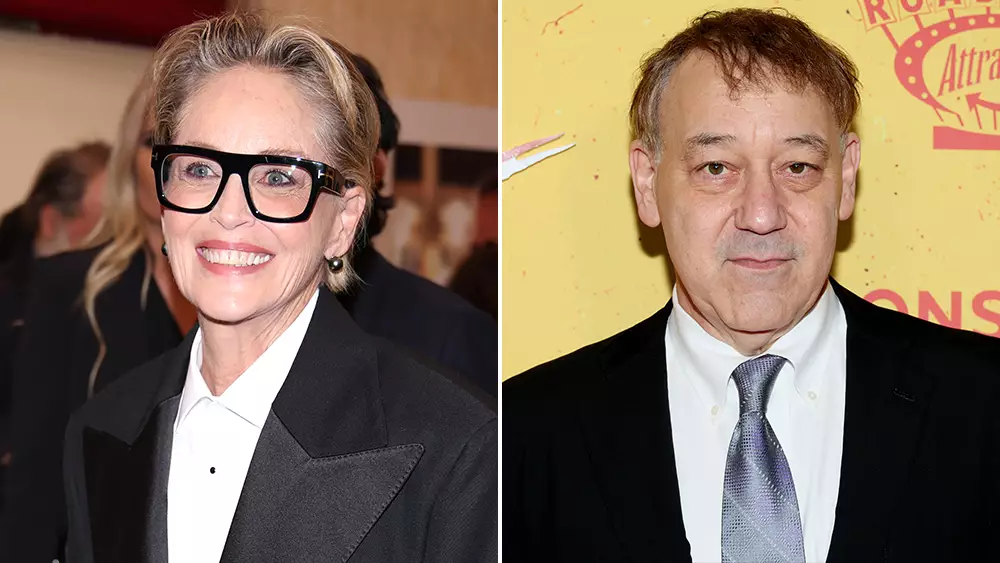Reflecting on her career at the Torino Film Festival, Sharon Stone revisited her experiences while working on the 1995 revisionist Western film *The Quick and the Dead*. This film, which famously stars Stone as a woman seeking vengeance in a lawless town, stands as a significant point of discussion for the actress—not merely for its artistic merits but for the relationships forged and fractured during its production. During a Q&A session, Stone pointedly addressed her working relationship with director Sam Raimi, contrasting the dynamics she experienced with him against those of acclaimed director Martin Scorsese.
In her remarks, Stone highlighted her role as a producer and her contributions in bringing actors like Russell Crowe and Leonardo DiCaprio to the forefront. This aspect of her career underlines her multifaceted talent and determination to shape not just her own roles but the landscape of Hollywood casting itself—a realm often dominated by male figures. However, her reflections also took a more somber turn when she noted the absence of loyalty and acknowledgment from Raimi. Stone’s comments painted a picture of a director who, despite his later successes, failed to recognize the collaboration that propelled both their careers.
The dichotomy between her experiences with Raimi and Scorsese is particularly striking. Stone’s praise for Scorsese underscores a broader theme within the industry: the value of personal relationships and professional loyalty. According to Stone, Scorsese, with his Italian heritage and familial approach, nurtured a depth to their collaboration that Raimi’s work lacked. This sentiment resonates with many in Hollywood who find that loyalty can often dictate the longevity of careers. Stone’s recounting of her professional trajectory reveals the profound impact such relationships can have—not just on individual projects but on the ongoing career paths of actors and filmmakers alike.
The implications of Stone’s words extend beyond her personal experiences; they reveal a systemic issue within Hollywood where loyalty can overshadow talent and drive. While she indicated a deep admiration for Raimi’s talent, her bitter recollections reflect a harsh reality about the nature of professional relationships in a fiercely competitive industry. Such narratives challenge the widespread perception that artistic merit alone is sufficient for success in Hollywood.
Despite its initial lukewarm reception, *The Quick and the Dead* has gained a cult following over the years. Stone’s role as the mysterious gunslinger holds a particular cultural significance, representing a shift in the portrayal of women in Westerns, a genre traditionally rife with stereotypes. The film’s evolution from a commercial failure to a beloved cult classic mirrors the broader trends in Hollywood, where retrospective appreciation often transforms the narrative surrounding certain films, allowing many to re-assess their value beyond box office figures.
However, Stone’s acknowledgment of the challenges she faced during and after its production reveals the systemic hurdles women face in maintaining a foothold in Hollywood, especially behind the camera. She pointedly criticized the era’s gender biases, recalling a time when her creative ambitions as a female director were met with skepticism and resistance. This struggle is emblematic of a more pervasive issue, where women are frequently sidelined in high-stakes discussions about filmmaking and creative direction, only to be asked to occupy supportive roles instead.
Stone’s lamentation about Hollywood’s sexism during the 1990s serves as a stark reminder of the cultural barriers still evident within the industry. Her assertion that she pitched numerous projects that were deemed excellent yet ultimately rejected due to her gender reflects a painful reality for many women in film. The courage it takes for women like Stone to demand a place in a traditionally male-dominated industry is remarkable, yet it underscores the resilience required to navigate a path filled with obstacles.
Sharon Stone’s reflections from the Torino Film Festival present a profound commentary on loyalty, gender bias, and the intricacies of professional relationships in Hollywood. Her experiences with directors like Sam Raimi and Martin Scorsese are not just personal anecdotes; they encapsulate the broader struggles for recognition and respect that many women continue to face in the film industry. Stone’s legacy is rich and multifaceted, serving as a testament to the power of perseverance amid adversity—a reminder of the importance of loyalty and acknowledgment in nurturing truly collaborative artistic ventures.

